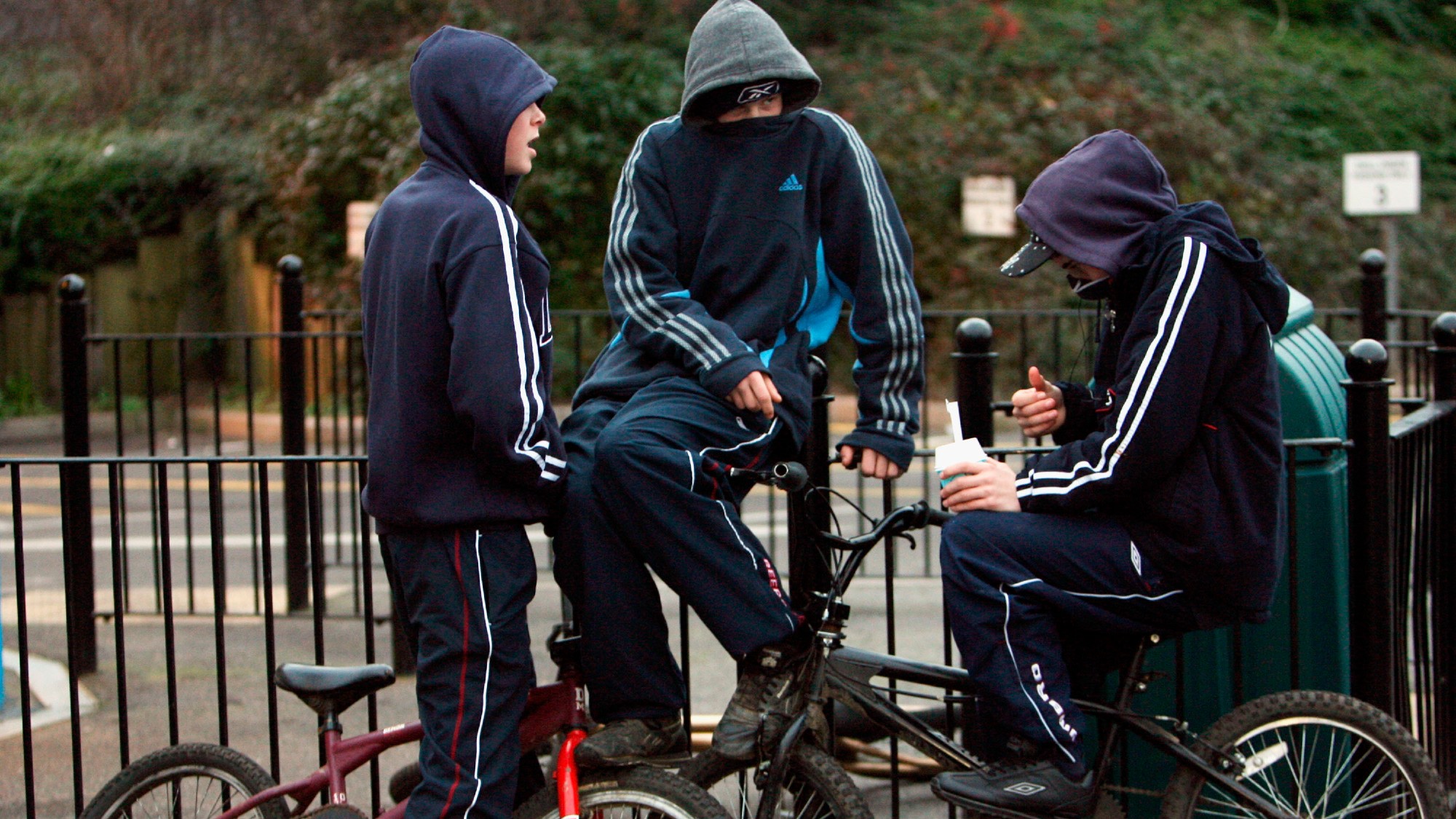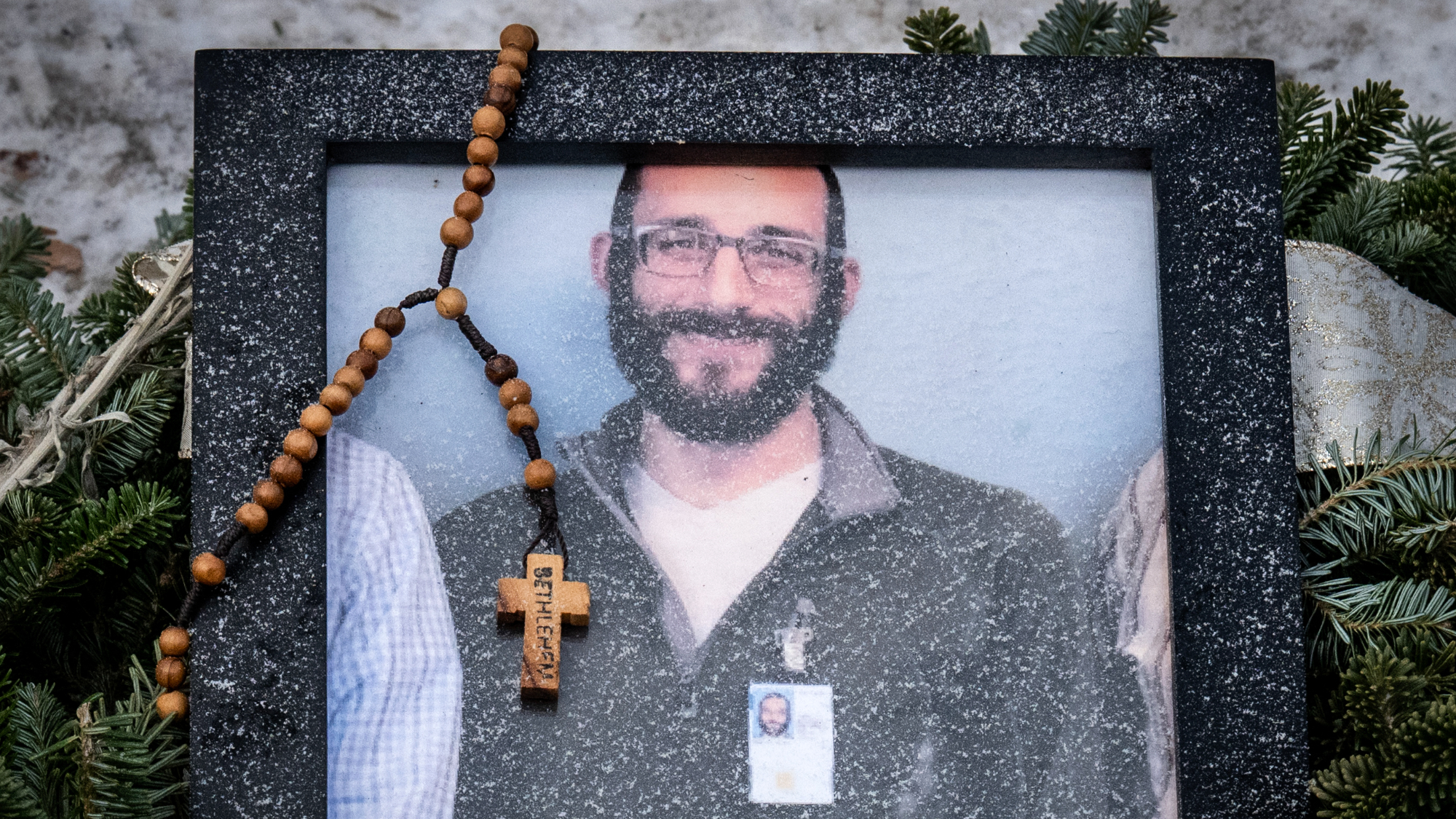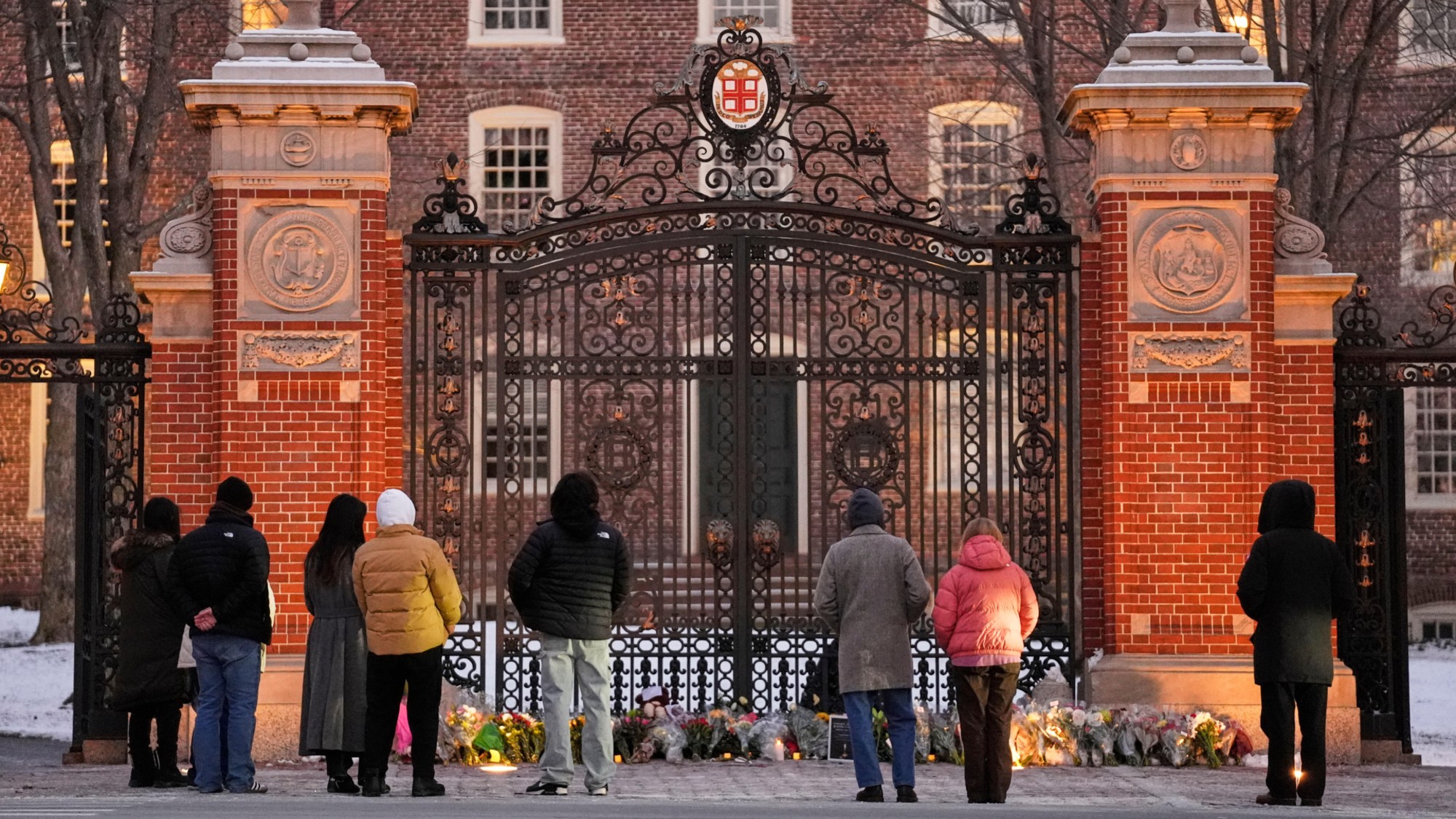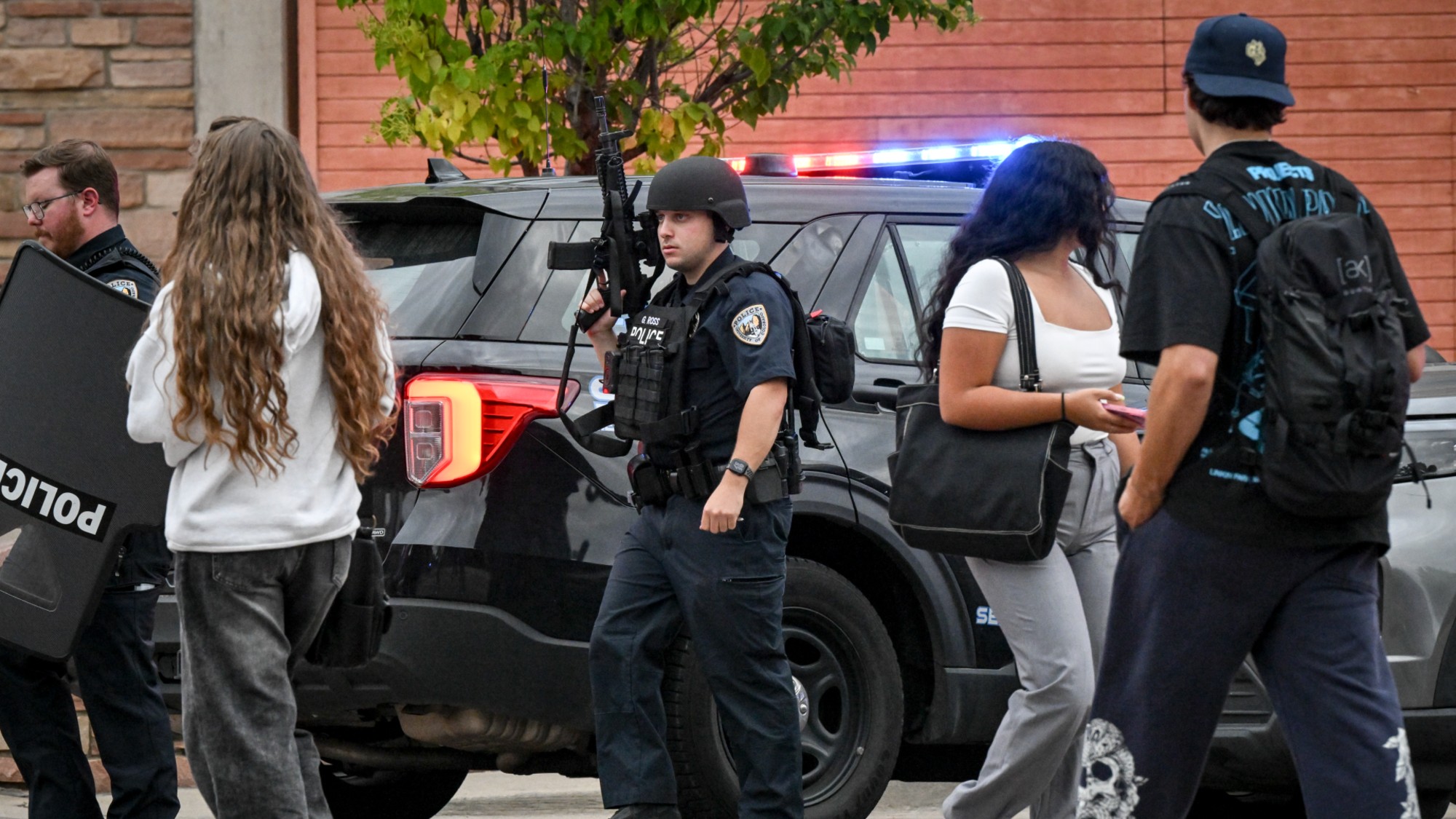The return of the Asbo
Will Home Office plans for 'respect orders' be a 'boon' for 'curtain-twitchers'?

A free daily email with the biggest news stories of the day – and the best features from TheWeek.com
You are now subscribed
Your newsletter sign-up was successful
The Home Secretary has revealed plans for new 'respect orders' to handle antisocial behaviour, with offenders facing up to two years in prison.
Yvette Cooper described the plan as a "modernised version" of the Asbo, or Anti-Social Behaviour Order, introduced by Tony Blair in 1998.
Respect orders and curfews
Under the new proposals, police, local authorities and social landlords would be handed the power to impose "respect orders" on "hooligans, drug users, street drinkers, fly-tippers, nuisance neighbours" and others engaged in antisocial behaviour, said The Times.
The Week
Escape your echo chamber. Get the facts behind the news, plus analysis from multiple perspectives.

Sign up for The Week's Free Newsletters
From our morning news briefing to a weekly Good News Newsletter, get the best of The Week delivered directly to your inbox.
From our morning news briefing to a weekly Good News Newsletter, get the best of The Week delivered directly to your inbox.
Officers would have the power to seize e-scooters being ridden on pavements and to ban offenders from urban centres and parks. "Where appropriate", said the broadsheet, perpetrators would be forced to attend anger management classes or rehabilitation treatment for drug or alcohol issues.
Offenders who breached a "respect order" would be committing a criminal offence and courts would be allowed to hand out unlimited fines, and order offenders to carry out unpaid work or keep to a curfew. The "maximum sanction" would be two years in prison.
'Boon for curtain-twitchers'
Last month, a watchdog said the police "must and can do better" in cracking down on antisocial behaviour. Describing the problem as a "blight” on communities", Lee Freeman, HM inspector of constabulary, said it was "vital" that forces understand its "complexity and prevalence" and focus on "effective early intervention".
Yvette Cooper said "too many town centres and neighbourhoods across our country are being plagued by antisocial behaviour" and her measures would make sure the "most serious offenders are dealt with before their behaviour can escalate and cause further harm".
A free daily email with the biggest news stories of the day – and the best features from TheWeek.com
But antisocial-behaviour measures are a "boon for curtain-twitchers", said Josie Appleton for Spiked, because they "heighten people's mutual intolerance" and "fuel their negative fixations on one another".
Speaking to The Justice Gap, Akiko Hart, director of the campaign group Liberty, said the plan was "concerning given we know from experience that these powers are routinely misused by the police, in particular to criminalise those experiencing homelessness".
'Badge of honour'
The respect orders signal the "return of the Asbo", said The Times. Upon its introduction in 1998, critics argued over whether it was a "symbol of the Blair government's creeping authoritarianism" or a "godsend for communities blighted by a minority of nuisance neighbours", said Jon Kelly for the BBC.
Headline writers "seized upon the term with gusto" and a "mini-industry flourished selling T-shirts, hoodies and even babies' playsuits emblazoned with Asbo-related slogans".
If Asbos "ever were effective", that "certainly wasn't my experience of them", wrote Ryan Coogan, who "grew up in a pretty deprived area of Manchester" during the late 90s and early 2000s, for Indy Voices.
They were "created to appease the scared middle-class electorate" who would "never set foot" in areas like his, where "shunned, angry kids who might have been upstanding members of society", turned to crime because "they grew up believing they were already criminals by virtue of their upbringing".
For many, the Asbo "became a badge of honour", said Francine Wolfisz in the Daily Mail, and "more than half of those who received one would breach its conditions". For many, Asbos had "little effect on their lives" and they went on to "commit more serious crimes" including burglary, rape and murder.
Theresa May was another critic of Blair's policy: in 2010, she said that Asbos "often criminalised young people unnecessarily, acting as a conveyor belt to serious crime and prison". They were replaced by civil injunctions and criminal behaviour orders in 2014.
Chas Newkey-Burden has been part of The Week Digital team for more than a decade and a journalist for 25 years, starting out on the irreverent football weekly 90 Minutes, before moving to lifestyle magazines Loaded and Attitude. He was a columnist for The Big Issue and landed a world exclusive with David Beckham that became the weekly magazine’s bestselling issue. He now writes regularly for The Guardian, The Telegraph, The Independent, Metro, FourFourTwo and the i new site. He is also the author of a number of non-fiction books.
-
 Health insurance: Premiums soar as ACA subsidies end
Health insurance: Premiums soar as ACA subsidies endFeature 1.4 million people have dropped coverage
-
 Anthropic: AI triggers the ‘SaaSpocalypse’
Anthropic: AI triggers the ‘SaaSpocalypse’Feature A grim reaper for software services?
-
 NIH director Bhattacharya tapped as acting CDC head
NIH director Bhattacharya tapped as acting CDC headSpeed Read Jay Bhattacharya, a critic of the CDC’s Covid-19 response, will now lead the Centers for Disease Control and Prevention
-
 Why have homicide rates reportedly plummeted in the last year?
Why have homicide rates reportedly plummeted in the last year?Today’s Big Question There could be more to the story than politics
-
 Demands for accountability mount in Alex Pretti killing
Demands for accountability mount in Alex Pretti killingSpeed Read Pretti was shot numerous times by an ICE agent in Minneapolis
-
 FBI bars Minnesota from ICE killing investigation
FBI bars Minnesota from ICE killing investigationSpeed Read The FBI had initially agreed to work with local officials
-
 ICE kills woman during Minneapolis protest
ICE kills woman during Minneapolis protestSpeed Read The 37-year-old woman appeared to be driving away when she was shot
-
 Campus security is under scrutiny again after the Brown shooting
Campus security is under scrutiny again after the Brown shootingTalking Points Questions surround a federal law called the Clery Act
-
 Executions are on the rise in the US after years of decline
Executions are on the rise in the US after years of declineThe Explainer This year has brought the highest number of executions in a decade
-
 Two men accused of plotting LGBTQ+ attacks
Two men accused of plotting LGBTQ+ attacksSpeed Read The men were arrested alongside an unidentified minor
-
 Colleges are being overwhelmed with active shooter hoaxes
Colleges are being overwhelmed with active shooter hoaxesIn the Spotlight More than a dozen colleges have reported active shooter prank calls